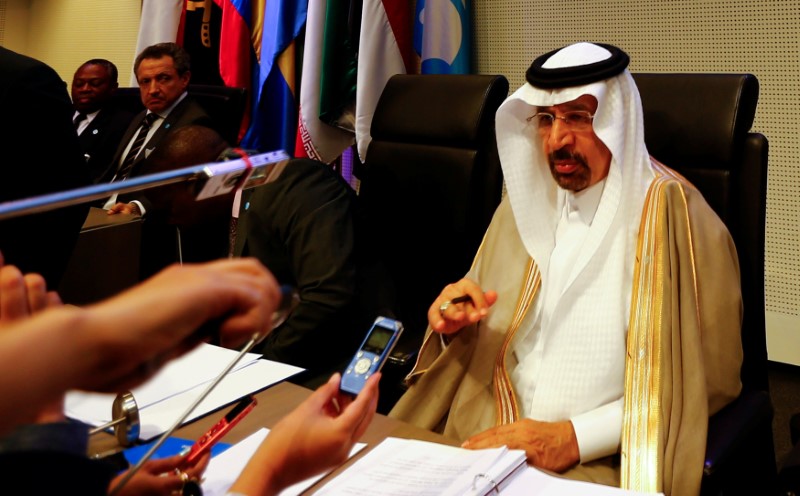Investing.com - Oil prices turned positive in early morning trade Tuesday after Saudi Arabia reportedly increased the pressure on fellow OPEC members and allies to extend their agreement on output restraint.
New York-traded West Texas Intermediate crude futures rose 38 cents, or 0.7%, at $52.55 a barrel by 9:10 AM ET (13:10 GMT), pulling back from an intraday low of $51.67, while Brent crude futures, the benchmark for oil prices outside the U.S. gained 14 cents, or 0.2%, to $61.08, after having fallen as low as $60.26.
According to a report from The Wall Street Journal, Saudi Arabia has cuts to its own output further this month, hoping to lead by example as it prepares to persuade its partners inside and outside OPEC to extend by another six months their current agreement, which cut 1.2 million barrels a day from December's output levels.
A Saudi oil adviser also told the financial newspaper that the Kingdom will put more pressure on those countries that aren’t fully complying with the original deal to meet the cuts they agreed to. They include OPEC members Iraq and Nigeria.
The deal was supposed to be reviewed at a meeting on June 25-26. However, the producers are now discussing the possibility of a pushing that back to July 10-12 according to sources cited by Reuters. That would allow the producers to see whether the U.S. and China can de-escalate their trade dispute at the G20 meeting on June 28, a meeting that is expected to be pivotal for developments in world oil demand for the rest of the year.
Although the dates have not been finalized, the new suggestion is that the Joint Ministerial Monitoring Committee, an advisory panel, meets on July 10, followed by OPEC ministers on July 11 and the combined gathering of OPEC and non-OPEC producers on July 12, the sources said.
Russian news agencies reported meanwhile that Alexander Novak, the country’s energy minister, had not yet discussed the idea with Saudi Arabia but was open to the new dates.
Escalating tensions in the Middle East also supported prices Tuesday, as the U.S. announced plans to send 1,000 troops to the region, in the wake of attacks on two oil tankers earlier. The U.S. has blamed Iran for the incidents. Iran rejects the allegations.
The attacks themselves caused only a short-term rally in oil prices last week.
Markets were also gearing up to receive the latest weekly data on U.S. crude stockpiles.
The American Petroleum Institute will release its report after the market close on Tuesday with the official data from the U.S. Energy Information Administration due a day later.
Although consensus is looking for a draw of about 2.0 million barrels, surprise builds in the previous two reports sent oil spiraling downwards.
In other energy trading, gasoline futures declined 0.2% at $1.6873 a gallon by 9:15 AM ET (13:15 GMT), while heating oil inched up 0.1% at $1.8035 a gallon.
Lastly, natural gas futures lost 0.4% at $2.376 per million British thermal unit.
